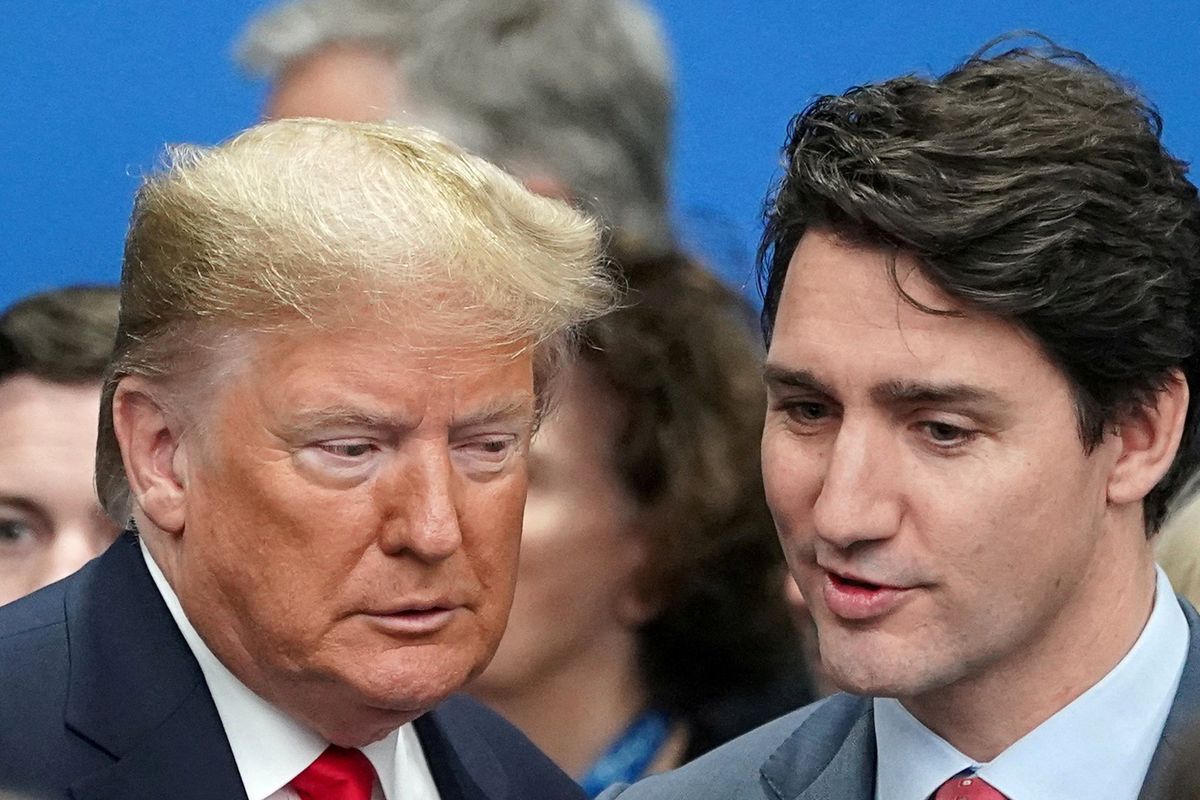'There's no question': Ex-advisor issues Canada warning about Trump's threats
President-elect Donald Trump has caused consternation in Canada with his threats to make the country part of the USA and his floating a 25% tariff on any imports. And a former economic adviser says it's part of his typical negotiation tactics. Speaking to the Canadian Broadcast Corporation, Stephen Moore — an economic adviser to Trump during the first administration — said it's an effort to create leverage. "I think there's no question that that's what he's doing here," Moore told CBC News in an interview. Also Read: 'Chaos': Small biz owner hit by Trump’s last tariff reveals key flaw that hurts companies"I've seen Trump up-front and personal over his presidency, and I've talked to him quite a bit about this," Moore said. "He uses the threat of tariffs to get countries to do things that he thinks are in America's national security and economic interests."It's working, too. Canada's Deputy Prime Minister Chrystia Freeland resigned over a disagreement about how to respond to Trump's threats, which sent political leaders spinning as Prime Minister Justin Trudeau attempted to stave off a trade war. "He wants to make sure that the trade deals that we have are fair for American workers and American companies," said Moore. "That's been a strategy that worked out pretty well in the first term, and I hope it will in the second term as well."Harvard professor Eugene B. Kogan, who teaches advanced negotiation skills, implied Trump smells blood in the water. "Prime Minister Trudeau is in political trouble at home, and I think that President-elect Trump is sensing the weakness," said Kogan in an interview. "He smells blood." He also highlighted Trump as a "brutally ruthless analyst of human weakness and political weakness," noting, "that is when he senses most of his leverage."Kogan called it a "win-lose" approach to negotiations. He thinks Trump likely spends "an almost 24-hour basis" focusing on how to use such weaknesses against his foes. "He is making a power move driven by the desire to establish his leverage," Kogan said. "The underlying message is, 'I will make it unpredictable for the other side, so much that the other side will be under pressure to make concessions.'"Read the full report here.


President-elect Donald Trump has caused consternation in Canada with his threats to make the country part of the USA and his floating a 25% tariff on any imports. And a former economic adviser says it's part of his typical negotiation tactics.
Speaking to the Canadian Broadcast Corporation, Stephen Moore — an economic adviser to Trump during the first administration — said it's an effort to create leverage.
"I think there's no question that that's what he's doing here," Moore told CBC News in an interview.
Also Read: 'Chaos': Small biz owner hit by Trump’s last tariff reveals key flaw that hurts companies
"I've seen Trump up-front and personal over his presidency, and I've talked to him quite a bit about this," Moore said. "He uses the threat of tariffs to get countries to do things that he thinks are in America's national security and economic interests."
It's working, too. Canada's Deputy Prime Minister Chrystia Freeland resigned over a disagreement about how to respond to Trump's threats, which sent political leaders spinning as Prime Minister Justin Trudeau attempted to stave off a trade war.
"He wants to make sure that the trade deals that we have are fair for American workers and American companies," said Moore. "That's been a strategy that worked out pretty well in the first term, and I hope it will in the second term as well."
Harvard professor Eugene B. Kogan, who teaches advanced negotiation skills, implied Trump smells blood in the water.
"Prime Minister Trudeau is in political trouble at home, and I think that President-elect Trump is sensing the weakness," said Kogan in an interview. "He smells blood."
He also highlighted Trump as a "brutally ruthless analyst of human weakness and political weakness," noting, "that is when he senses most of his leverage."
Kogan called it a "win-lose" approach to negotiations. He thinks Trump likely spends "an almost 24-hour basis" focusing on how to use such weaknesses against his foes.
"He is making a power move driven by the desire to establish his leverage," Kogan said. "The underlying message is, 'I will make it unpredictable for the other side, so much that the other side will be under pressure to make concessions.'"



